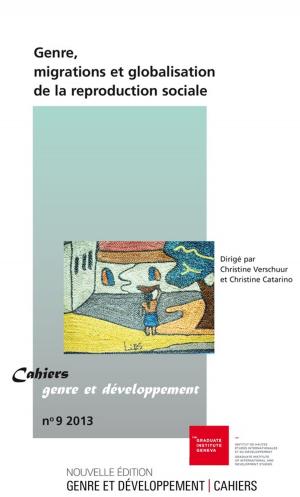Exporting Legality
The Rise and Fall of Extraterritorial Jurisdiction in the Ottoman Empire and China
Nonfiction, Social & Cultural Studies, Political Science| Author: | Mariya Tait Slys | ISBN: | 9782940503438 |
| Publisher: | Graduate Institute Publications | Publication: | February 10, 2014 |
| Imprint: | Graduate Institute Publications | Language: | English |
| Author: | Mariya Tait Slys |
| ISBN: | 9782940503438 |
| Publisher: | Graduate Institute Publications |
| Publication: | February 10, 2014 |
| Imprint: | Graduate Institute Publications |
| Language: | English |
How did two radically different legal cultures, those of the Ottomans and the Chinese, gradually acquire a legal architecture analogous to that of Europe? This Paper attempts to answer this question by providing a comparative study in legal history of the rise and demise of extraterritorial consular jurisdiction, utilizing a post-colonial and inter-disciplinary approach to international law. The study reveals that the establishment of consular jurisdiction during the nineteenth century was closely linked to the process of legal ‘modernization’ that affected many Asian and Arab societies. As such, this study contributes to the explanation of the gradual convergence of many non-Western traditional legal cultures with typically continental legal structures. This ePaper provides an in-depth analysis of the origin, further development and termination of this controversial institution of public international law as applied to the Ottoman Empire and China. Mariano Garcia Rubio Prize 2013 in International Law.
How did two radically different legal cultures, those of the Ottomans and the Chinese, gradually acquire a legal architecture analogous to that of Europe? This Paper attempts to answer this question by providing a comparative study in legal history of the rise and demise of extraterritorial consular jurisdiction, utilizing a post-colonial and inter-disciplinary approach to international law. The study reveals that the establishment of consular jurisdiction during the nineteenth century was closely linked to the process of legal ‘modernization’ that affected many Asian and Arab societies. As such, this study contributes to the explanation of the gradual convergence of many non-Western traditional legal cultures with typically continental legal structures. This ePaper provides an in-depth analysis of the origin, further development and termination of this controversial institution of public international law as applied to the Ottoman Empire and China. Mariano Garcia Rubio Prize 2013 in International Law.















